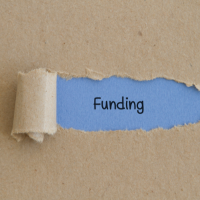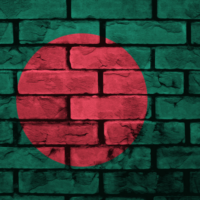The African Women’s Development Fund (AWDF) stands as a beacon of hope and empowerment for women across the African continent. Established in 2000, AWDF is a pan-African grant-making organization dedicated to supporting the advancement of women’s rights and gender equality. With a mission to promote the economic, social, and political empowerment of women, AWDF has become a vital player in the landscape of African development.
The organization recognizes that women are not just beneficiaries of development but are also key agents of change. By providing financial resources and capacity-building support, AWDF aims to create an enabling environment where women can thrive and contribute meaningfully to their communities. AWDF’s approach is rooted in the belief that sustainable development cannot be achieved without the full participation of women.
The fund prioritizes initiatives that address the unique challenges faced by women in various contexts, including economic disparities, social injustices, and political marginalization. By focusing on grassroots organizations and community-based initiatives, AWDF ensures that its resources are directed toward those who are most affected by these issues. This commitment to empowering women at the local level has led to transformative changes in communities across Africa, fostering resilience and promoting gender equality.
Grant-making and capacity-building programs
AWDF employs a multifaceted approach to grant-making that goes beyond mere financial support. The organization recognizes that many grassroots organizations lack the necessary skills and resources to effectively implement their projects. Therefore, AWDF combines its grant-making efforts with capacity-building programs designed to enhance the skills and capabilities of these organizations.
This dual approach not only provides immediate financial assistance but also equips organizations with the tools they need for long-term sustainability. For instance, AWDF has implemented training workshops focused on project management, financial literacy, and advocacy strategies. These workshops empower local organizations to develop robust proposals that resonate with potential funders.
By enhancing their capacity to articulate their missions and demonstrate impact, these organizations are better positioned to secure additional funding from various sources. A notable example is the partnership between AWDF and a local women’s cooperative in Ghana, which received both funding and training. As a result, the cooperative was able to expand its operations, increase its membership, and improve the livelihoods of its members.
Impact on rural communities
The impact of AWDF’s initiatives is particularly pronounced in rural communities, where women often face significant barriers to empowerment. In many cases, these barriers include limited access to education, healthcare, and economic opportunities. AWDF’s targeted interventions have led to substantial improvements in the lives of women in these areas.
By funding projects that focus on agricultural development, health education, and microfinance, AWDF has helped women gain greater control over their resources and decision-making processes. One compelling example is a project funded by AWDF in rural Uganda that aimed to improve food security through sustainable farming practices. The initiative provided training on organic farming techniques and access to microloans for women farmers.
As a result, participants not only increased their crop yields but also gained confidence in their abilities as entrepreneurs. The success of this project has had a ripple effect within the community, inspiring other women to engage in agricultural activities and fostering a culture of collaboration and support among female farmers.
Advocacy and policy influence
AWDF recognizes that systemic change is essential for achieving gender equality and empowering women across Africa. To this end, the organization actively engages in advocacy efforts aimed at influencing policy at both national and regional levels. By collaborating with various stakeholders, including governments, civil society organizations, and international bodies, AWDF seeks to create an enabling environment for women’s rights.
One notable achievement in this area was AWDF’s involvement in the African Union’s Agenda 2063, which emphasizes the importance of gender equality in Africa’s development agenda. Through strategic advocacy campaigns, AWDF has successfully lobbied for the inclusion of gender-responsive policies that address the specific needs of women. This has resulted in increased funding for women-focused initiatives and greater recognition of women’s contributions to development.
By amplifying the voices of grassroots organizations, AWDF ensures that the perspectives of women are integrated into policy discussions, leading to more inclusive decision-making processes.
Support for women in conflict and post-conflict regions
Women in conflict and post-conflict regions face unique challenges that require targeted interventions. AWDF has made it a priority to support these women by funding initiatives that address their specific needs and vulnerabilities. This includes providing psychosocial support, economic empowerment programs, and advocacy for their rights in post-conflict reconstruction efforts.
For example, AWDF has supported initiatives in countries like South Sudan and the Democratic Republic of Congo, where women have been disproportionately affected by violence and instability. By funding programs that focus on trauma healing and economic reintegration, AWDF helps women rebuild their lives and regain agency in their communities. These initiatives not only provide immediate relief but also contribute to long-term peacebuilding efforts by empowering women as leaders and advocates for change.
Partnerships and collaborations with local organizations
Strengthening Partnerships
AWDF actively seeks out partnerships with local organizations that share its vision. By leveraging the strengths of these organizations, AWDF can enhance its impact and reach more women across Africa.
One successful partnership involved collaboration with a network of women’s rights organizations in West Africa focused on combating gender-based violence. Through joint advocacy efforts and resource sharing, these organizations were able to amplify their voices and influence policy changes at both national and regional levels.
Amplifying Voices
This collaborative approach not only strengthens individual organizations but also fosters a sense of solidarity among women’s rights advocates across the continent. By working together, women’s rights organizations can amplify their voices and create a more significant impact.
Towards a Brighter Future
In conclusion, the African Women’s Development Fund plays a crucial role in advancing gender equality and empowering women throughout Africa. Through its innovative grant-making strategies, capacity-building programs, advocacy efforts, support for women in conflict zones, and collaborative partnerships with local organizations, AWDF is making a tangible difference in the lives of countless women. As we look toward the future, it is essential for NGO professionals to draw inspiration from AWDF’s model and continue working towards creating a more equitable world for all women.









































